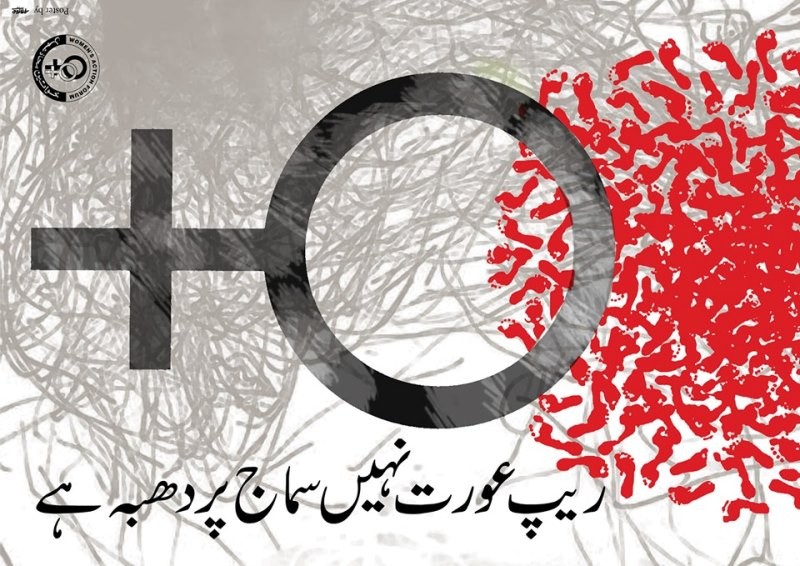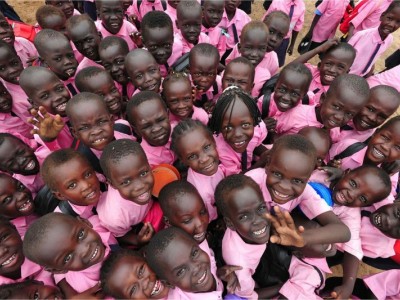
Community
Save the abused women in Pakistan
$0 raised of $50,000 goal 0.00%- 0 Donations
- No deadline
- 0 Likes
When a rape is reported two things happen: diverted reporting and attrition. Rape cases are not reported as actual rape cases. Half of the time, they are reported as a dacoity, trespassing, someone beating someone up, murder, or a robbery. “People want to report the crime but they don’t want to report the nature of the crime,” said Brohi.
If there was a rape, it is reported how someone got angry or someone took revenge, or how someone murdered the rapist. By the time it reaches the police and courts, it has turned into a murder case, or a multiple murder case. “But the fact that there was a rape behind it all gets buried,” she said. This is called “diverted reporting”.
Attrition is what happens when a rape case enters the system. Many get to the police station level, but they never make it to trial or they never reach the point of conviction. They slip in the system.
Rape is also not reported because of who the rapists tend to be. We have to factor in the class of the rapist, his political connections, ethnicity, whether he is a stranger or someone the woman knew.
In so many cases we know of, they were not raped by a stranger. The woman knows her rapist in some way or the other. “It isn’t necessary that he be romantically involved,” clarified Brohi. “He can be from her family, extended family, neighbourhood. He can be a teacher, a cousin—they know each other in some capacity.”
But this makes it even harder to report because you are raising a finger at someone the whole family knows. This is why the family decides the matter should stay within the family and not get out. In fact, if a woman says it was a stranger, said Brohi, there is a higher chance that the police will actually investigate. When it tends to be a stranger, you see more revenge action but this is rare when it comes to men from within the family, she added.
The victim’s class also matters when it comes to reporting rape. “I’m not saying there aren’t rapes in the well-off class. It absolutely happens,” said Brohi. “But a powerful class has even more ways to tackle [the rape]. Their dependence on the State is lower.”
It’s like bottled water. If the rich don’t get it in their taps from the State (say, government-run water board), they buy it from a private company. They don’t insist that the State provide them proper water, they just manage it themselves by some other means.
We often see this in the elite in rape cases, she argued. “Their dependence on the State is lower. They will either keep the case secret or will find some way to take care of it.” They get their own revenge, or relocate the woman, outside the city, outside the country. They have the money and resources. The poor do not.
If there was a rape, it is reported how someone got angry or someone took revenge, or how someone murdered the rapist. By the time it reaches the police and courts, it has turned into a murder case, or a multiple murder case. “But the fact that there was a rape behind it all gets buried,” she said. This is called “diverted reporting”.
Attrition is what happens when a rape case enters the system. Many get to the police station level, but they never make it to trial or they never reach the point of conviction. They slip in the system.
Rape is also not reported because of who the rapists tend to be. We have to factor in the class of the rapist, his political connections, ethnicity, whether he is a stranger or someone the woman knew.
In so many cases we know of, they were not raped by a stranger. The woman knows her rapist in some way or the other. “It isn’t necessary that he be romantically involved,” clarified Brohi. “He can be from her family, extended family, neighbourhood. He can be a teacher, a cousin—they know each other in some capacity.”
But this makes it even harder to report because you are raising a finger at someone the whole family knows. This is why the family decides the matter should stay within the family and not get out. In fact, if a woman says it was a stranger, said Brohi, there is a higher chance that the police will actually investigate. When it tends to be a stranger, you see more revenge action but this is rare when it comes to men from within the family, she added.
The victim’s class also matters when it comes to reporting rape. “I’m not saying there aren’t rapes in the well-off class. It absolutely happens,” said Brohi. “But a powerful class has even more ways to tackle [the rape]. Their dependence on the State is lower.”
It’s like bottled water. If the rich don’t get it in their taps from the State (say, government-run water board), they buy it from a private company. They don’t insist that the State provide them proper water, they just manage it themselves by some other means.
We often see this in the elite in rape cases, she argued. “Their dependence on the State is lower. They will either keep the case secret or will find some way to take care of it.” They get their own revenge, or relocate the woman, outside the city, outside the country. They have the money and resources. The poor do not.
Related Campaigns
Take a look at other campaigns in the same category.

Community
 by John Doe
No deadline
by John Doe
No deadline
How The Crab Lost His Head
A long time ago Crab was a very handsome man. He was tall. He had fine hair. He...
$0
0.00%
raised of $100

Community
 by Admin
No deadline
by Admin
No deadline
Help Children in Africa
Lorem ipsum dolor sit amet, consectetur adipiscing elit. Integer ut tortor rutru...
$13,360
133.60%
raised of $10,000
